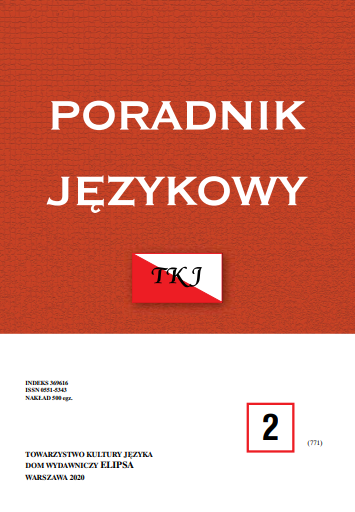Alternacja lokatywna w wybranych leksykalnych bazach danych
Locative alternation in selected lexical databases
Author(s): Patrycja PałkaContributor(s): Monika Czarnecka (Translator)
Subject(s): Syntax, Lexis, Semantics, Western Slavic Languages
Published by: Dom Wydawniczy ELIPSA
Keywords: verb; locative alternation; regular polysemy; semantics; syntax; lexicography;
Summary/Abstract: The object of interest in this paper is verbs describing situations where substances or objects are being removed from a surface. Such verbs are characterized by being subject to locative alternation, which could be exemplified by constructions such as: Dozorca zamiata śmieci z ulicy. - Dozorca zamiata ulicę (ze śmieci) (The caretaker is sweeping litter from the street. - The caretaker is sweeping the street (to remove litter)). The phenomenon of alternation consists in regular variantivity in the syntactic manifestation of verb arguments, whereas locative alternation, according to Beth Levin, concerns at least two manners of expressing arguments assuming the following properties: 1. ‘an object changing its location’ (locatum argument), and 2. ‘a location’ (location argument) in a sentence (Levin 1993: 50). The principal objective of the paper is to discuss whether and how locative alternation is taken into account and described in selected Polish-, English-, and Russian-language specialist lexicographic publications, such as: the Valence Dictionary (Walenty), FrameNet, and Leksykograf (Lexicographer), a base of Russian verbs. The analysis is also aimed to answer the question if the alternating syntactic structures reveal any change in the communicated content and, more specifically, in the manner of illustrating a given situation.
Journal: Poradnik Językowy
- Issue Year: 2020
- Issue No: 02
- Page Range: 61-81
- Page Count: 21
- Language: Polish
- Content File-PDF

